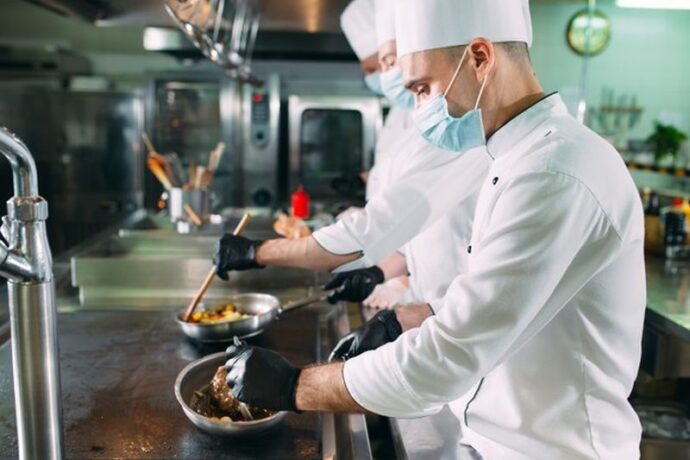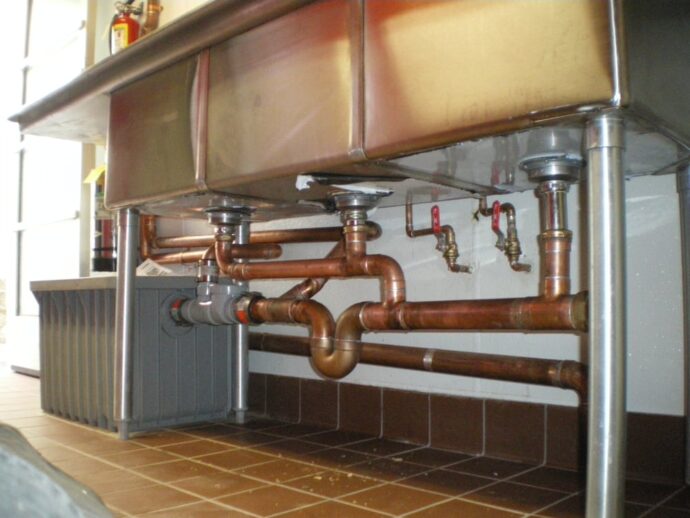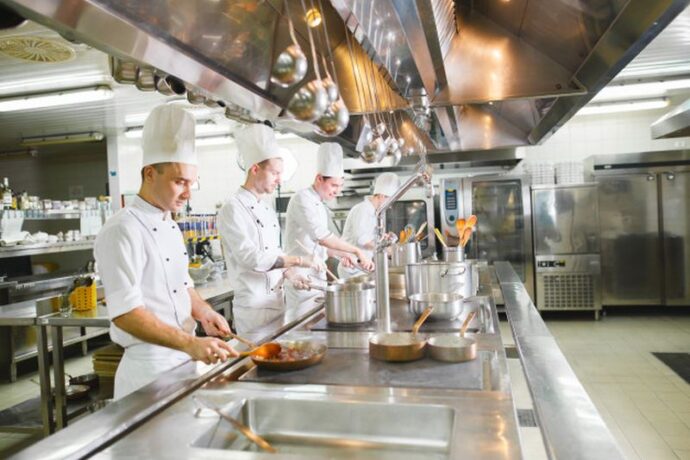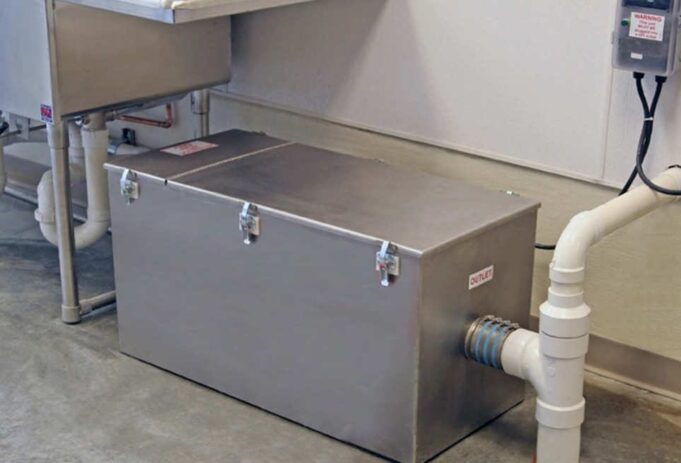We all use different types of foods during the cooking process that contain grease, such as meat fats and vegetable oils. The grease could cause a serious problem if we are not careful where we throw it.
What is the reason for this?
Some of us may know, but those who do not may well consider that throwing grease into the sink can cause clogged pipes, blockages of sewer lines, sewage backups, and even sanitary sewer overflow. All this happens because grease cools and hardens in the pipes at normal temperatures.
Instead of throwing lunch grease into a bottle in the trash can, there is a solution to this problem known as a grease trap or interceptor. Places where food is prepared should own this plumbing device.
Particularly public locations where large quantities of food are regularly used, such as restaurants, hotels, fast food restaurants, canteens, etc.
In this article, we will talk about the importance of the grease trap as well as the question of when is it time to replace it.
What does a Grease Trap mean and how does it work?

An interesting fact about grease traps is that they have been used since the Victorian days. Over the years, the technology has developed, and now there are more alternatives on the market. A grease trap or interceptor is a tank and is usually located under the sink in households. It is well known that grease is less dense than water and does not mix, so it floats on top of it.
During the flow of kitchen wastewater through a grease trap, the grease floats to the surface inside the trap, and the baffle system assists in the trapping process. The baffle, which serves as a wall in the tank, assists the trapping process by slowing and regulating the water flow.
The size of the tanks depends on the amount of food waste needed. For example, restaurants need a larger grease trap to increase efficiency. However, this is not as simple as it seems. Once enough grease accumulates in the grease trap, it must be cleaned out. These grease traps need regular maintenance and cleaning.
That means larger tanks need to be emptied less frequently and smaller tanks more frequently. You can conduct this process manually, or you may sometimes involve a pump truck and other specialized equipment for the larger tanks. Emptying the tank regularly will extend its operating life by preventing it from becoming damaged while avoiding additional repair costs.
The Importance of a Grease Trap

Investing in one is of vital importance to your business, your home, and your environment. Before you decide to invest in this device, you need to research well. Carefully consider the technical specifications, design, etc., because if you only focus on the price, it is very likely that you will incur additional repair costs in the future. Being aware that the device itself involves costs for regular maintenance and cleaning, it is clear that no one would want to incur extra repair costs and replacement of parts.
Anyone who owns a restaurant knows that maintenance requires a lot of effort, including hygiene, precision, safety, and so on. In short, there are many things to consider. Some property owners may not be aware that neglecting and not properly maintaining the tank can lead to problems with the building’s plumbing, such as damaged pipes, poor drainage, and bacterial growth.
An overflowing grease trap can also cause contamination and backup in the city’s main sewer, therefore property owners may be penalized.
On the other hand, those who try to save money hire unprofessional people or even force their employees to clean the device and later wonder why problems occurred despite the tank emptying. Sometimes people incur higher costs trying to pay less.
Undoubtedly, they will get a bad reputation for their restaurant since the damage to the grease trap is very noticeable with its horrible smell that guests will surely notice. Believe that you will spend far less money and have no additional stress if you hire a professional and certified service who works more efficiently, compared to some who may charge less but are not experts.
According to greasetrapjacksonville.com, there is no doubt that quality always beats cheap service, and this is especially true when it comes to selecting a grease trap company to partner with. Food establishments that frequently go for cheap companies to clean their grease traps find themselves in trouble with the authorities.
When to replace your Grease Trap

As we already know about the issues that can occur due to negligence and recklessness, it is also very important to recognize the warning signs that indicate it is time to replace your grease trap. If you notice these signs, do not wait to call professional service and replace your device:
- Foul Odors
If you failed to clean the tank regularly, there would be a strong unpleasant odor, which even the cleaning will not fix it. The constant accumulation of food waste in the grease trap and inadequate cleaning will cause this terrible smell.
- Clogged Pipes
Likely, the problem with clogs that have been around for a long time is probably not going to be solved, so it will be necessary to consider a replacement.
- Holes
Decomposed food accumulated in the device for a long time, releases sulfuric acid, which causes corrosion of the grease trap walls and creates holes.
- Grease traps made of metal
Older designs of grease traps were made of metal with a lifespan of five to seven years. If you have this type of device, it is better to replace it with a plastic one, as this model has no risk of corrosion and rust while having a prolonged working period.
- Frequent Need for Pumping
In case you notice that the grease trap is becoming less effective, this can mean that there is a risk of damage to both the inlet and outlet baffles during the pumping process.
If you recognize these signs and act in time, you will not be liable for any damage that may occur. If you want to avoid additional costs in the future, it is necessary to choose real professionals with a good reputation. As soon as you notice any of these signs, call a team of experts who will provide you with the necessary services and thus maintain your reputation as a restaurant, i.e., help you keep it clean, hygienic, and safe.















